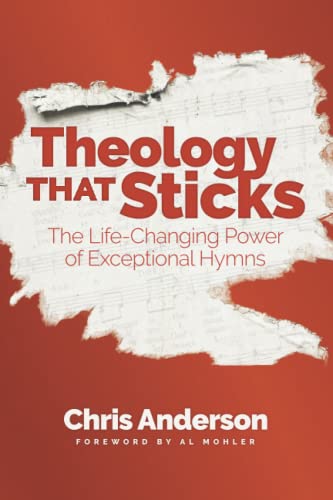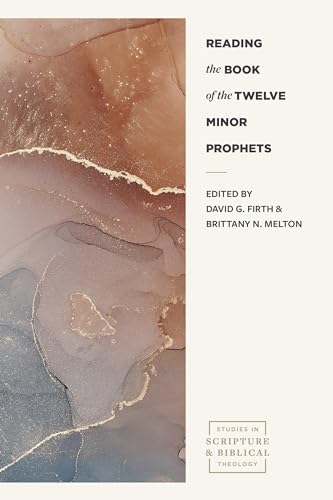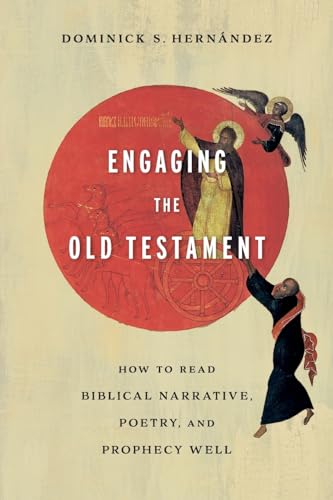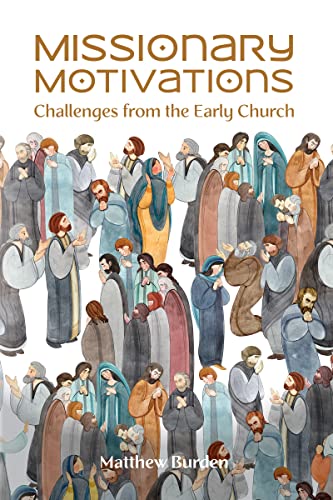Volume 48 - Issue 3
Skin in the Game?
By Daniel StrangeAs I reach the middle of middle-age, I am, perhaps rather too predictably, doing a bit of soul-searching. It’s not quite a midlife crisis, more a midlife querying. Who am I? Where have I come from? Where I am heading? What will my legacy be? The usual stuff that can very quickly turn into an ugly ungodly self-absorption. The usual stuff that can very quickly tempt me to forget the preeminent promises and securities I have in my identity with Christ. In my own variation of this familiar theme, the issue of ethnic identity and heritage increasingly looms large. On the face of it, this is rather odd. On the one hand, I am a British citizen, having been born and lived in the United Kingdom all my life. To all intents and purposes, I am English and patriotically so when it comes to my cultural formation and sporting affiliations. This is a surprise in itself, remembering the quip that the defining characteristic of being English is to be in a state of confusion about what it means to be English.1 This cannot be said of the Scots, Irish, and Welsh. Such confusion among the English has led to less healthy manifestations witnessed in my lifetime, ranging from hands-over-eyes embarrassment, to hand-wringing guilt, to fist pumping jingoism.
On the other hand, I have dual-heritage. I am half Guyanese. More precisely I am half Indo-Guyanese. My father was born in Guyana, South America, then, still a British colony with strong links to the Caribbean. His great grand-parents (probably from a Brahmin or Warrior caste) were indentured workers brought up from India to work in the sugar cane plantations. In 1964, when my dad was nineteen, he left on a boat for England waived off by his village and his nine brothers and sisters. Guyana would achieve independence the following year, becoming a republic within the commonwealth in 1970. The fact that quite early upon his arrival my dad changed his name from ‘Siu Singh’ and ‘Ram Persaud’ to ‘Steve Strange’, is not simply a nice comic ice breaker I often use when introducing myself, (‘yes, I’m Dr Strange … yes, my middle name is Steven, just like the Marvel character … and did you know my dad changed his name to Strange? [laughter all around]). More importantly this change of name is a microcosm of my father always being reticent to talk about his past, it being something he seemed defensive and even a little ashamed about (you don’t have to tell me the irony of his chosen alternative!). And yet, it peeped through as I was growing up, the tale of how he got that huge scar on his thigh from kite-fighting with razor blades and which could have killed him, the sitar music in the house played on cassette tape, egg-and-potato curry served with wonderful rotis, calypso bedtime songs, and encouragements to watch Saturday morning TV serializations of the Bhagavadgita. The recollection that my grandfather on my mother’s side to whom I was close growing up, and who eventually had a decent relationship with my father, hadn’t attended my parents’ wedding in the early seventies seemingly because of the colour of my dad’s skin.
Back to my midlife querying. It’s ironic but perhaps not surprising that my dad’s suppression of his past has meant that I’ve become more and more fascinated by it. Since his death over fifteen years ago, I’ve wanted to know more and more about him, about my Guyanese heritage, quizzing extant aunts and uncles living in the US and Canada whom I am in contact with. A few tantalizing details have been forthcoming, but there are still lots of gaps which makes it all the more mysterious and makes me all the more inquisitive.2 Honestly, it hasn’t been a consciously dominant theme of my identity, or the ways others have perceived me, particularly after I was converted. Yes, when people knew my dad’s background I was occasionally called a ‘half-caste’ at school, but no-one really knew what that meant and I wasn’t bothered by it.3 However, as I grow older, it’s an itch that I want to scratch. My Indo-Guyanese ethnic consciousness has increased as I try to understand my father—as I try to understand myself.
Such inquisitiveness has coincided with a recent request to do some teaching about ‘race’ and racism, ethnicity, and critical race theory. The first seminary module I ever taught around 2005 was one I had inherited with a rather ambiguous title: ‘Race and Religion’. I was comfortable in teaching the ‘religion’ side but when it came to ‘race’ side I was scrabbling around a bit to try get up to speed on some basic sociological material that was new to me, and to try and put it in biblical and theological perspective. In the course of my preparation and teaching I observed at least eight quite complex features of the terrain, from those arising within the sphere of secular thought, to those offered by theologians, and all occurring not merely as a field of discourse but part of a deeply emotional discussion with real life implications. I summarize them as follows.
First, and as the sociologist Steve Fenton notes:
Ethnic group, race and nation are three related concepts sharing a single centre or ‘core’—with some notable and important differences at the periphery. Common to all is an idea of descent and ancestry and very closely implicated in all three we find ideas about culture. These ideas about culture will typically include myths about the past, beliefs about ‘the kind of people we are’, and the idea that ‘culture’ defines a group in that it may be constituted by language, dress and custom. In this sense they may be all described as ‘descent and culture communities’. Ethnic group, race and nation are all viewed by themselves or by observers, as peoples who have or lay claim to shared antecedents.4
Second, that the concept of ‘race’ particularly in its scientific guise is a deeply problematic concept and an enlightenment construction, but as a term continues to be used in the discourse (and I include intra-Christian discourse), and often without the apostrophe marks. In other words, while race does not exist biologically, ‘race’ does imaginatively. My third observation was that while ‘racism’ is a sin, and indeed includes all kinds of sins (e.g., malice, vain-glory), it is not a biblical term. Fourth, that ethnicity5 was and is a much more suitable term, but that since the Enlightenment there has been a spectrum of thinking shaping one’s thinking on the matter. At one end is primordialism/essentialism where the cry is nature and the theme is that human beings are constructed by history. That is to say that a person or people’s behaviour in the world is fundamentally pre-formed. One could say that ethnicity is part of our make-up. At the other end is instrumentalism/constructivism where the cry is freedom and the theme is that human beings construct history. That is to say that a person of people’s behaviour is not pre-formed but constructed either by them or by others and used as an instrument for other ends (usually economic). One could say that ethnicity is made-up.6 Fifth, that the clash of those extremes on the spectrum as they seek to suppress the other often leads to more extreme manifestations of each with disastrous social consequences. My sixth observation was that Christians can articulate both in terms of systematic theological categories, and biblical theology, a theory of ethnicity which cuts through the impasse of essentialism and contructivism with profound implications for human identity, the identity of the church, and public and social policy. Seventh, that among those who are committed to the authority of Scripture, that there are slightly different ways of putting biblical material together that leads to evangelical construals that look like they are more sympathetic to either essentialism or constructivism and again with implications for identity and public policy.7 My final observation was that discussing all of the above, even among Christians, and even in the academic setting of a classroom, can be very enlightening particularly where different ethnic groups are present, but also very challenging and painful particularly when brothers’ and sisters’ personal experiences are shared and commented upon.
Fast forward eighteen years. Unless you’ve been living on another planet, you will not be surprised that I have come back to this topic in 2023 with fear and trembling. So much has happened, so much had been said, so many claims and counter-claims have been made, so many fault lines (!) have been drawn within society and within the church with regards to these issues.8 It’s frankly overwhelming. For evangelical identity and methodology it’s worrying. And it all coincides with my own ethnic identity explorations.
The confluence of these intellectual and personal reflections came at a recent meeting of British evangelical theologians and reflective practitioners where an item on the agenda was racial diversity and unity. A black British evangelical professional of some public standing had been invited to share their experiences of growing up in the UK. Some of the experiences they recounted of conscious and unconscious racism, particularly in their chosen career, were pretty shocking. No-one doubted any of these experiences and neither did we think they were exaggerated. However, there was an extrapolation made from their own particular experience as a black person in Britain to the general experience of black men and women in Britain, together with the reasons they gave for continuing disparities between black and white ethnic groups in Britain, which focused on the systemic and the structural, and that to my mind needed more exploration and development. Now it happened that I had been dipping into Thomas Sowell’s revised and enlarged edition of Discrimination and Disparities, which, not without controversy, argues that the reason for disparity within society is often multifactorial, challenging the idea that it can be explained by one factor, be it discrimination, exploitation, or genetics.9 It’s what happened next in our meeting that I want to explore.
I wanted to ask my Sowell question within the room, but here’s the thing, I was scared to. Much to friends and colleagues’ annoyance, I’m often the first one in with a question, but on this occasion there was a real reticence on my part. Heart-beating, with a lump in my throat, and as if pushing up some extraordinary weight, I slowly raised my hand and squeaked out my question, having decided that it was important for me to preface my question by saying that I was of dual-heritage and that Sowell was an African American, as if that would give myself, my question, and Sowell’s thesis more authenticity and legitimacy. The response back was in essence that such analysis and statistics were unimportant given their experiences. Silence ensued for a few moments and one could feel the tension.
I’ve thought a lot about this exchange since. In my opinion, no one came out well in this encounter, including me. More heat than light was produced. The atmosphere was all wrong. As I reflected on what might have been at the root of this I think it was not an issue of personalities or the way in which the discussion was handled. It was a deeper, more foundational problem. The issue was, I believe, methodological and as such goes to the heart of problems that evangelical Christians need to attend to as we discuss this—and other potentially divisive issues.
First, and in previous editions of this very column, I have espoused affection for a methodological multiperspectivalism as championed by figures such as Vern Poythress and John Frame.10 Recognising our finitude and sin, and that human knowledge is always ectypal (while God’s is archetypal), the more perspectives we take time to understand and appreciate, the richer our understanding of the truth will be and the less prone we will be to misunderstanding and error. We are embodied, situated, and limited creatures with a textured history, and understanding how I hear and how I am heard is important. In this sense my mid-life querying to understand my ethnic heritage is both natural and normal. Recognising and recounting one’s experiences in life is valid.
Second, however, and again as I have noted previously, it is precisely multiperspectivalism cut loose and untethered from stable epistemological moorings, and as a result ‘gone to seed’ which describes the epistemological foundations of critical theories espousal of ‘lived experience’ and ‘standpoint theory’ which claims the epistemological privilege of certain groups. Certainly, there has been a methodological untethering in certain accounts of ‘black theology’ which takes it outside the bounds of evangelicalism. For example, here is the conclusion of Anthony Reddie in his description of ‘black theology in Britain’:
In conclusion, then, black theology in Britain, like her many counterparts in of the rest of the world, is committed to a radical appropriation of the Gospel in order that those who are the ‘least of these’ (Matt. 25:31–46) might live, and have that life in all its fullness (John 10:10). This ongoing work is grounded in a praxis that is not mindful of either doctrinal purity or Biblical literalism. As such, black theology in Britain continues to challenge normative black Christian faith that has for far too long drunk rather too deeply from the well of ‘evangelical post-Reformation theology,’ which has largely muted Christianity’s embodied radical intent. Instead, black theology in Britain continues to offer a radical form of thinking and contextual praxis that simultaneously seeks to empower marginalized and disenfranchised black people alongside the need to challenge and inspire white power to see and act differently.11
Returning to that meeting, it’s those stable moorings that I think we’d drifted from on that day and that was unbecoming for an evangelical meeting as perceived unspoken dynamics of power and privilege were pinging around that room in all directions.
In short, on that day we had given the ministerial authority of experience precedence over the magisterial authority of Scripture, somewhat ironic for a roomful of theological and reflective practitioners. We had not started with the only secure epistemological starting point, the biblical framework and a theological anthropology12 through which might both interpret our experiences and suggest how we might relate to one another as brothers and sisters in Christ.13 When it was all going awry, no one called this out and suggested a reset to remind the group of key theological guardrails and graces. The Bible’s ultimate authority must never be assumed and we should never be embarrassed by reminding ourselves of it. On that day we had not privileged God’s Word or theology, and for that we were poorer. I had immediately gone to Sowell when perhaps I should have raised a question rooted in doctrine. I should have done better. I need to do better. Praise God that with the Spirit’s help, I will do better, as brothers and sisters whose identity is in Christ resolve with each other to interpret the world through the word and build on that solid themelios (foundation).14
[1] Cf. George Orwell’s exploration of this in his 1941 classic England Your England (London: Penguin Classics, 2017).
[2] One illuminating and beautifully written account that has given me insight into my heritage is Gauitra Bahadur’s Coolie Women: The Odyssey of Indenture (London: Hurst, 2013). The book serves as a biography of the author’s great-grandmother Sujaria, and a study of the indentured labour system at the beginning of the twentieth century as Sujaria was brought up from India to Guyana.
[3] A derogatory term originating from the Latin castus (pure), and the Spanish and Portuguese derivative ‘casta’ (race). For a brilliantly comic and ironic response to being called a half-caste, see the poem ‘Half-Caste’ by Guyanese poet John Agard (b. 1949) which is performed by the poet here: https://www.youtube.com/watch?v=zDQf2Wv2L3.
[4] Steve Fenton, Ethnicity (Cambridge: Polity, 2003), 13. I would want to add the category of ‘religion’ here too.
[5] And associated terms like ‘ethne’ and ‘ethnocentrism’.
[6] This spectrum is illustrated well in terms of Welsh identity by the late Dewi Hughes in his excellent book Ethnic Identity from the Margins: A Christian Perspective (Pasadena: William Carey, 2012).
[7] In my own construal I have been heavily influenced by Mark Kreitzer, The Concept of Ethnicity in the Bible: A Theological Analysis (Lewiston: Edwin Mellen, 2008).
[8] To quote the title of Voddie Baucham’s book Fault Lines: The Social Justice Movement and Evangelicalism’s Looming Catastrophe (Washington, D.C.: Salem, 2021).
[9] Thomas Sowell, Discrimination and Disparities, revised ed. (New York: Basic), 2019.
[10] Daniel Strange, ‘Dr Strange in the Multiperspectival Paradox’, Themelios 47.2 (2022): 242–48.
[11] Anthony Reddie, ‘Black Theology in Britain’, in The Cambridge Companion to Black Theology, ed. Dwight N. Hopkins and Edward P. Antonio (Cambridge: Cambridge University Press), 241–42.
[12] With its associated doctrines, such as the image of God.
[13] I think Kevin DeYoung’s fifteen suggestions on how we can discuss the topic of race and racism while maintaining the unity of Spirit in the bond of peace (Eph 4:3), and grow into maturity together in Christ (vv. 13–16), are very helpful. See his ‘Thinking Theologically about Racial Tensions’, The Gospel Coalition, 2020, https://tinyurl.com/ykhkvu33. I also recommend many of the practical suggestions for individuals and churches in Jason Roach and Jessamin Birdsall, Healing the Divides: How Every Christian Can Advance God’s Vision for Racial Unity and Justice (Epsom: Good Book, 2022).
[14] Θεμέλιος, cf. 1 Cor 3:12; Eph 2:20.
Daniel Strange
Daniel Strange is director of Crosslands Forum, a centre for cultural engagement and missional innovation, and contributing editor of Themelios. He is a fellow of The Keller Center for Cultural Apologetics.
Other Articles in this Issue
Menzies responds to Tupamahu’s post-colonial critique of the Pentecostal reading of Acts and the missionary enterprise...
The Lamblike Servant: The Function of John’s Use of the OT for Understanding Jesus’s Death
by David V. ChristensenIn this article, I argue that John provides a window into the mechanics of how Jesus’s death saves, and this window is his use of the OT...
Geerhardus Vos: His Biblical-Theological Method and a Biblical Theology of Gender
by Andreas J. KöstenbergerThis article seeks to construct a biblical theology of gender based on Geerhardus Vos’s magisterial Biblical Theology...
Is the One God of the Old Testament and Judaism Exactly the Same God as the Trinitarian God—Father, Son, and Holy Spirit—of the New Testament and Christian Creeds?
by John Jefferson DavisThis article argues that the One God of the Old Testament and Judaism is exactly the same God as the Trinitarian God of the New Testament and Christian creeds...
A well-known Christian intellectual and cultural commentator, John Stonestreet, has often publicly spoken of the need for Christians to develop a theology of “getting fired...






